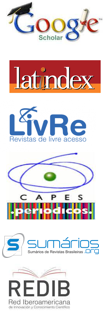Considerações Sobre a Formação de Professores do Ensino Fundamental de Turno Único na Rede Estadual do Paraná
DOI:
https://doi.org/10.17921/2447-8733.2021v22n3p340-345Resumo
Resumo
A oferta de Ensino Integral é consolidada como uma das melhores estratégias na busca de atendimento pleno da Educação Pública no Brasil, especialmente, com o intuito de alcançar educandos em situação de vulnerabilidade social. Historicamente, os programas de Governo se estruturaram na tentativa de agregar atendimento que extrapola o atendimento educacional, congregando outras esferas de serviços públicos, com enfoque no público mais vulnerável, com a oferta escolar em turno e contraturno. O ensino de turno único, desde 2012, propõe enfoque específico com reconfiguração da matriz curricular do Ensino Fundamental, com formato integrado de oferta das disciplinas. O objetivo foi discutir o Ensino Integral, tanto seu percurso histórico no Brasil como na política educacional de implementação no Paraná. Para a realização desse estudo se adotou pesquisa bibliográfica na literatura produzida sobre o tema, bem como nos documentos oficiais que nortearam suas implementações. Com o estudo se tornou visível que as políticas educacionais, em suas propostas, que modificam sobremaneira as estruturas de escolas e matrizes curriculares destinam vagas conceituações quando referente aos responsáveis in loco pela execução dessas políticas, tornando evidente que a diferenciação da oferta, impreterivelmente, deve ser para além do prolongamento da jornada escolar. A consolidação do programa, enquanto permanente, demanda formação continuada para professores que atuam, diferente da generalizada para toda a rede de Ensino Estadual, fator de impacto determinante no sucesso de sua execução e ampliação de atendimento.
Palavras-chave: Educação Básica. Educação Integral. Formação Continuada.
Abstract
The offer of full-time education is consolidated as one of the best strategies in the search for full service to public education in Brazil, especially with the aim of reaching students in situations of social vulnerability. Historically, government programs have been structured in an attempt to aggregate care that goes beyond educational care, bringing together other spheres of public services, with a focus on the most vulnerable public, with the school supply in shift and second shift. The single shift teaching since 2012, proposes a specific approach with the curricular matrix reconfiguration of elementary education, with an integrated format for offering subjects . The objective was to discuss full-time education, both its historical trajectory in Brazil and in the educational implementation policy in Paraná. To carry out this study, bibliographic research was adopted in the literature produced on the theme, as well as in the official documents that guided its implementations. With the study it became visible that the educational policies in their proposals that greatly modify the schools and matrices curricula structures aim at vague conceptualizations when it comes to those responsible in loco for the implementation of such policies, making it evident that the offer differentiation must be beyond the school day extension. The program consolidation, while permanent, requires continued training for teachers who work, different from the generalized for the entire state education network, a determining impact factor in the success of its execution and attendance expansion.
Keywords: Elementary Education. Full-time Education. Continuing Training.
Downloads
Publicado
Como Citar
Edição
Seção
Licença
Copyright (c) 2021 Revista de Ensino, Educação e Ciências Humanas

Este trabalho está licenciado sob uma licença Creative Commons Attribution-NonCommercial-NoDerivatives 4.0 International License.



